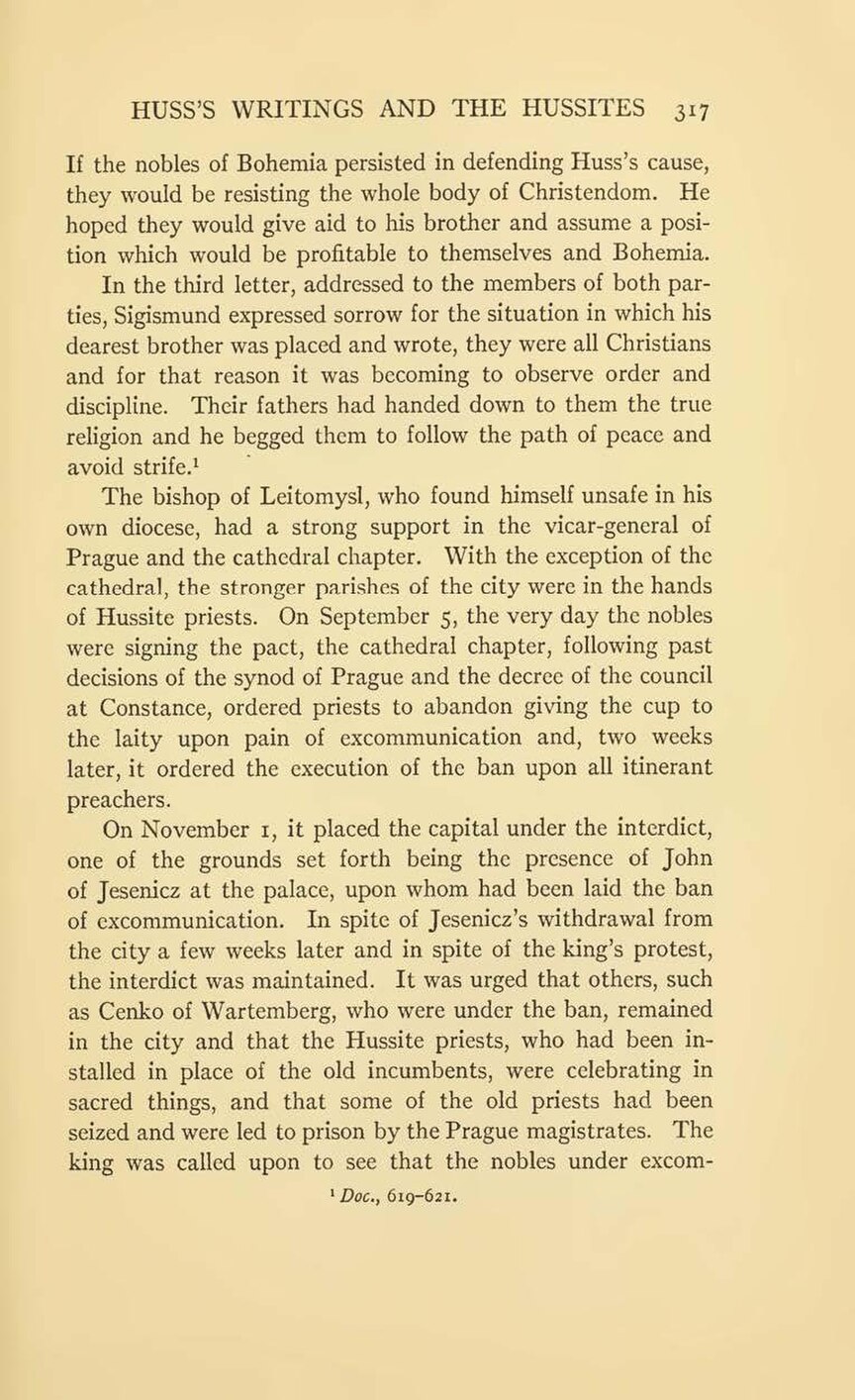If the nobles of Bohemia persisted in defending Huss’s cause, they would be resisting the whole body of Christendom. He hoped they would give aid to his brother and assume a position which would be profitable to themselves and Bohemia.
In the third letter, addressed to the members of both parties, Sigismund expressed sorrow for the situation in which his dearest brother was placed and wrote, they were all Christians and for that reason it was becoming to observe order and discipline. Their fathers had handed down to them the true religion and he begged them to follow the path of peace and avoid strife.[1]
The bishop of Leitomysl, who found himself unsafe in his own diocese, had a strong support in the vicar-general of Prague and the cathedral chapter. With the exception of the cathedral, the stronger parishes of the city were in the hands of Hussite priests. On September 5, the very day the nobles were signing the pact, the cathedral chapter, following past decisions of the synod of Prague and the decree of the council at Constance, ordered priests to abandon giving the cup to the laity upon pain of excommunication and, two weeks later, it ordered the execution of the ban upon all itinerant preachers.
On November 1, it placed the capital under the interdict, one of the grounds set forth being the presence of John of Jesenicz at the palace, upon whom had been laid the ban of excommunication. In spite of Jesenicz’s withdrawal from the city a few weeks later and in spite of the king’s protest, the interdict was maintained. It was urged that others, such as Cenko of Wartemberg, who were under the ban, remained in the city and that the Hussite priests, who had been installed in place of the old incumbents, were celebrating in sacred things, and that some of the old priests had been seized and were led to prison by the Prague magistrates. The king was called upon to see that the nobles under excom-
- ↑ Doc., 619–621.
